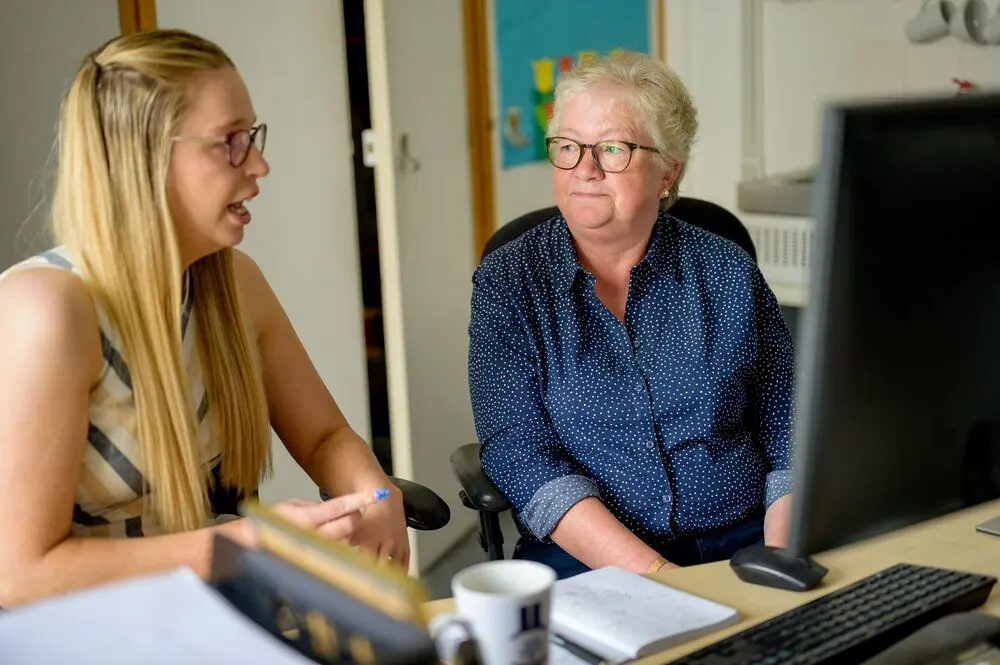Using a Lasting Power of Attorney | How Do They Work?

Estimated Reading Time: 10 minutes
A Lasting Power of Attorney allows people to act on your behalf and make decisions for you. You might use a Lasting Power of Attorney if you’re no longer able to make decisions for yourself or don’t wish to anymore.
In this article, we’ve explained exactly what a Lasting Power of Attorney is and how this legal document work in England, including how and when to make one, how to register it and how much they cost.
Arrange care at home
Browse the best home care in your area.
In this article:
- What is a Lasting Power of Attorney (LPA)?
- Mental capacity
- Other types of Power of Attorney
- Differences between a Lasting Power of Attorney and Power of Attorney
- Who can make one?
- When to make it
- Making your LPA
- Registering your LPA
- How to end your LPA
- How much do they cost?
- What are the benefits?
- LPA in care homes
What is a Lasting Power of Attorney (LPA)?
A Lasting Power of Attorney (LPA) is a legal document which enables you (the donor) to appoint one or more trusted people (the attorneys) to help you make decisions, or make decisions on your behalf if necessary.
This is the most common type of Power of Attorney and includes the word ‘Lasting’ in its name as it’s designed to span a long period. An LPA doesn’t expire, but can be cancelled.
You can make an LPA as long as you still have the mental capacity to do so - meaning you’re able to make decisions while fully understanding their consequences.
An LPA provides much-needed assurance that your wishes and needs will be fulfilled in the future. It’ll come into effect if you lose mental capacity, or no longer wish to make decisions for yourself (these decisions could revolve around your finances, property or health care).

There are two main types of LPA, and we’ve explained these below.
Property and financial affairs Lasting Power of Attorney
These are used to make decisions relating to the following:
- Buying or selling property
- Investments
- Tax
- Paying the mortgage
- Paying other bills
- Property repairs and maintenance
- Managing bank accounts
- Welfare benefits
- Other certain benefits
- Pensions
Health and welfare Lasting Power of Attorney
These are used to make decisions relating to the following:
- Medical care and medical treatments
- Other medical interventions if you’re likely to be in danger
- Other types of support, such as whether you’d like to be looked after in a nursing home or through home care
- Diet and nutrition
- Who you have contact with
- Social activities you take part in
- Your overall living situation
Once an LPA has been set up, it’ll only come into effect if the donor’s mental capacity has been lost.
What is Mental Capacity?
If you have mental capacity, you’re able to make your own decisions. If you’re unable to make decisions for yourself, you ‘lack capacity’. You may lack capacity because of a physical injury, a brain injury, illness, dementia or a different type of health condition.
To be considered as having capacity, you must be able to:
- Understand all information relevant to a decision
- Be able to remember and weigh up this information when making a decision
- Communicate this decision to others in some way
You may need someone to act on your behalf (through a Lasting Power of Attorney) if you’ve been diagnosed with dementia and could lose the ability to make your own decisions in the future.
We can help you find the best home carer for you or your loved one’s care needs, including domiciliary (hourly) and live-in carers. Request a free list of home care agencies, and our care experts will match you with suitable carers with availability in your local area.
Other Types of Power of Attorney
There are a couple of other types of Power of Attorney. More than one of these can be created if necessary.
Ordinary Power of Attorney
This allows one or more person(s) to make decisions on your behalf. These people are known as your attorneys.
An Ordinary Power of Attorney is only valid as long as you still have the mental capacity to make decisions for yourself.
These are often used when you (the donor) can’t be present to sign a financial document or make a particular decision. For example, you may be physically unwell, have had an accident or be abroad for an extended period.
Enduring Power of Attorney
The Enduring Power of Attorney (EPA) was replaced by the Lasting Power of Attorney in 2007, so a new one can no longer be made. However, if an EPA was created before 1st October 2007, it’ll still be valid (and can be registered if it hasn’t been already).
Much like an LPA, these give the person you appointed (the attorney) the legal authority to manage the property and financial affairs of somebody else.
They come into effect if the person who created it lost mental capacity, or wanted someone else to act on their behalf for different reasons.
Differences Between a Lasting Power of Attorney and Power of Attorney
| Lasting Power of Attorney Key Characteristics | Power of Attorney Key Characteristics |
|---|---|
| They can still be used when the donor loses mental capacity | They can only be used when the donor is deemed to have mental capacity |
| They’re permanently valid once created (unless the donor passes away) | They’re only valid for a temporary period |
| They can be used to manage financial affairs, along with decisions relating to property, health and welfare | They can only be used to manage financial affairs |
Who Can Make a Lasting Power of Attorney?
To make an LPA, you need to be aged 18 or older and have the mental capacity to make important decisions, including those related to finance, property and health care.
If the above applies, you can arrange for someone else to be your attorney - they must also be over 18 years old - while you’ll be known as the donor.
You can appoint a single attorney, or multiple attorneys. Multiple attorneys can act in one of two ways:
Jointly - They’ll act jointly and always make decisions together
Jointly and severally - Some decisions are made together while others are made separately
When To Make a Lasting Power of Attorney
Many legal firms offering LPA services recommend everybody has one, and that it’s important to put an LPA in place while you still have the capacity to do so.
Older adults are more likely to lose mental capacity than younger people, often due to cognitive conditions such as dementia.
Creating an LPA doesn’t mean you’ll lose the ability to make decisions for yourself. This document can only be used with your consent and once you’ve lost capacity.
How To Make a Lasting Power of Attorney
Here are the main steps to make a Lasting Power of Attorney:
- Choose your attorney (you can have multiple)
- Fill in the forms to appoint these people as your attorneys
- Register your LPA with the Office of the Public Guardian (we’ve gone over how to do this in the next section)
You can also use the GOV.UK service to help you create an LPA in England or Wales.
If you want assistance creating a Lasting Power of Attorney, there are numerous solicitors and legal services available who will help you and offer professional advice (though naturally, they’ll also charge for this help). We’ve given some examples below:
How To Register a Lasting Power of Attorney
Once you’ve made an LPA, it needs to be registered with the Office of the Public Guardian (OPG). If there aren’t any mistakes in the application, this registration process will take up to 20 weeks.
If you’re able to make your own decisions, you can apply yourself to register for LPA. Alternatively, your appointed attorney can register it for you.
Before registering, you’ll need to send a form to notify people (LP3) to everyone you listed in the LPA. They’ll then have three weeks to raise any objections directly with the OPG.
You can apply as soon as you’ve sent the ‘forms to notify people’.
Send the form to this address:
Office of the Public Guardian
PO Box 16185
Birmingham
B2 2WH
How To End a Lasting Power of Attorney
To end an LPA, you’ll need to make a written statement known as a ‘deed of revocation’. This should be sent to the Office of the Public Guardian. You’ll also need to send them the original LPA.
Click this link for a template of what to put in the deed of revocation - replacing the words in square brackets with the relevant information.
You (the donor) can end your LPA if you have the capacity to make that decision.
If you pass away, your LPA will automatically end.
How Much Does a Lasting Power of Attorney Cost?
In England and Wales, it costs £82 to register each kind of LPA. So, if you get a property and financial affairs + health and welfare LPA, this would cost £164 in total for one person.
If you use an attorney service to help you with registering and LPA, this will be more expensive.
For example, Seatons charge £1,004 for both types of LPA (this includes the registration fees), or £622 for a single LPA for one person.
Co-op Legal Services offer fully advised LPA services starting from £354, or you can use their online service to register each type of LPA for £120 (but you’ll have to pay the £82 registration fee separately).
Power of Attorney Benefits
Here are some of the benefits of getting a Power of Attorney:
- You can appoint people you trust
- They protect you from fraud and keep your assets safe
- You can leave specific instructions, such as if there’s a certain dementia care home you’d like to be placed in
- You’ll feel confident about receiving treatment that reflects your wishes
- Your loved ones will be able to access your money if necessary
- They allow you to plan in advance
- Life can quickly become expensive and stressful without one
- There are different types of LPA, so you can choose which one is best for your particular situation
Above all, they provide peace of mind for you and your loved ones during what can be a difficult and emotional time.
Lasting Power of Attorney in Care Homes
A Health and Welfare LPA covers decisions surrounding health care, such as whether you or your loved one will move into a care home or receive similar support elsewhere.

If your loved one is entering a care home, the home manager may bring up this subject. Staff will want to know their residents’ preferences, so they can provide suitable support going forward.
If your loved one is in a care home, getting an LPA makes sense, as it allows them to appoint someone they trust and who will keep their best interests at the centre of all decisions.
We’re on a mission to support individuals and their loved ones throughout each stage of their later living journey. For more information, check out everything Lottie has to offer.
Loading FAQs...



